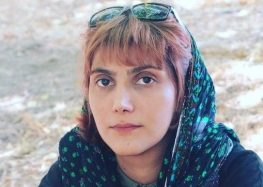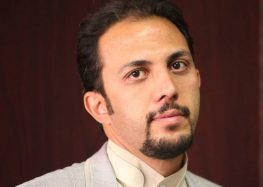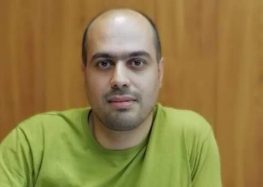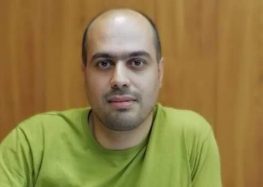Prominent Iranian Journalist Remains Hospitalized After Delayed Health Care
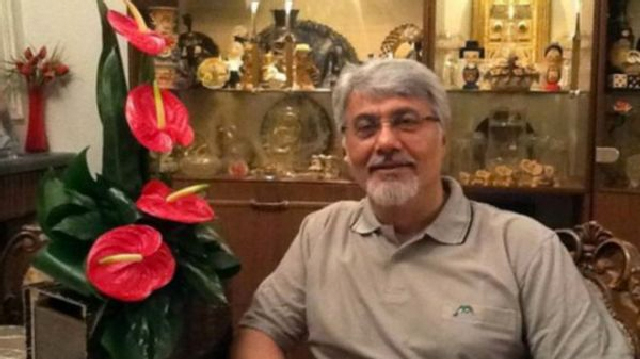
Severe health problems are keeping prisoner of conscience Issa Saharkhiz, a prominent reformist journalist, under observation in the hospital he was transferred to from Evin Prison on March 9, 2016.
Saharkhiz has protested his detention and inhumane conditions by enduring three hunger strikes since being arrested by the Revolutionary Guards’ Intelligence Organization on November 2, 2015.
“The doctors say that my father needs to be supervised and undergo some more tests to determine his new ailment and he’s still suffering from high blood pressure as well as kidney and heart diseases,” Saharkhiz’s son, Mehdi Saharkhiz, told the International Campaign for Human Rights in Iran.
In a letter from prison published on his son’s Facebook account on March 8, 2016, Saharkhiz said he had not received timely health care despite exhibiting serious medical symptoms.
“I … had severe seizures a few times. After three and a half months, and only on orders from the representative of the Legal Medicine Organization, was I transferred to the infirmary at Evin Prison,” wrote Saharkhiz.
“I have not received even a simple electroencephalogram (EEG) for diagnosis of this new, unknown condition,” he said. “Naturally, when a medical examination that is critical to a prisoner’s health is neglected, the prisoner’s other rights are also neglected.”
Political prisoners in Iran are singled out for particularly harsh treatment, which often includes denial of medical care, in direct violation of Iran’s own laws and Prison Regulations.
“I was often locked up in a solitary cell, which is a form of ‘white torture’ [psychological and mental torture],” he added.
Solitary confinement is a common tactic used in Iran to increase psychological pressure on a prisoner to extract a false confession. Such “confessions” are then used as evidence to convict—and are frequently broadcast over Iran’s state TV in order to defame the individual.
“Even when someone else shared a cell with me, it was just to look after me, because, due to various reasons and different illnesses, I have repeatedly fallen down in the room, the bathrooms, the courtyard, during fresh air breaks, etc., due to a severe drop in my blood pressure and poor blood circulation to my brain,” wrote Saharkhiz.
“I hope my father will go free in this [Persian] New Year [starting March 20, 2016),” his son, Mehdi Saharkhiz, told the Campaign.
“I hope the authorities will act according to the Constitution and not send people to prison for expressing their views,” he said. “All my father did was speak his mind. Now he’s so sick that they moved him to the hospital.”
Sixty-two-year-old Issa Saharkhiz, a well-known political commentator, has been charged with “assembly and collusion for acting against national security” and “propaganda against the state.”
He was due to face trial on March 5, 2016, at Branch 28 of the Tehran Revolutionary Court, but the proceedings were postponed after Saharkhiz’s lawyers complained they had not been allowed to access his case file until the day of the trial.
Saharkhiz ended his third hunger strike, which had lasted two weeks, on March 7 after he was transferred from solitary confinement inside Evin Prison’s Ward 2-A—controlled by the Revolutionary Guards’ Intelligence Organization—to Ward 8.
But he lost consciousness on March 9, 2016 and was taken to a hospital outside the prison in Tehran.
Saharkhiz previously spent nearly five years in prison for publishing political commentaries critical of the widely disputed results of Iran’s 2009 presidential elections.
He previously served in President Mohammed Khatami’s reformist administration (1997-2005) as head of the press department at the Ministry of Culture and Islamic Guidance.

